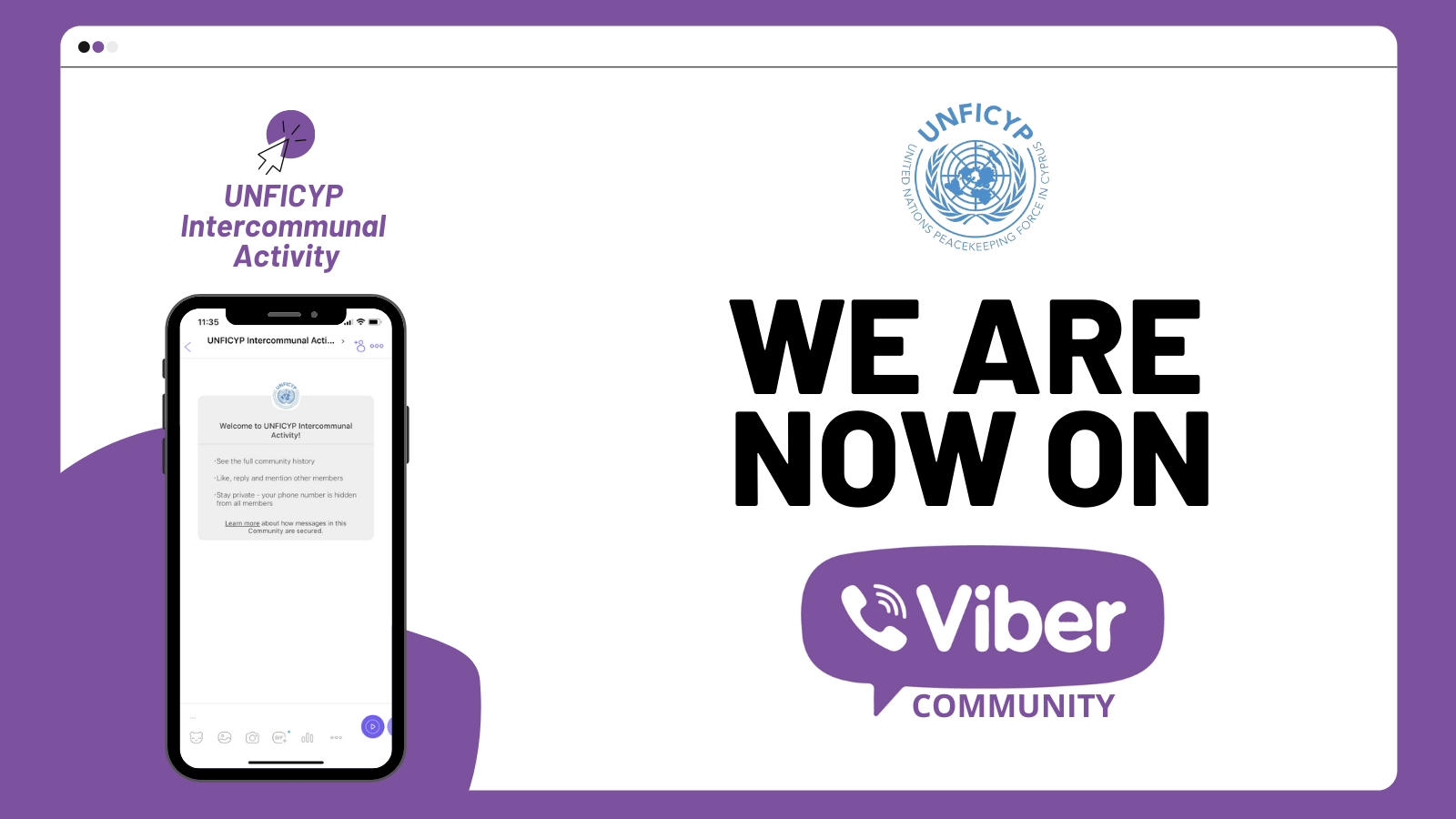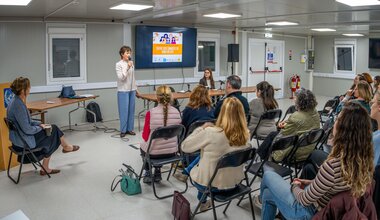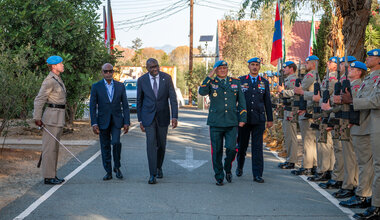Peacekeeper Profile: Ann-Kristin Kvilekval
Ann-Kristin Kvilekval from Norway initially joined her country’s police services in 1991; she now works at the Norwegian Police University College and handles all pre-deployment training for police officers. She currently serves as Senior Police Adviser at the United Nations Force in Cyprus (UNFICYP), following stints with the United Nations Transitional Administration in East Timor (UNTAET); the United Nations Interim Force in Lebanon (UNIFIL) and the United Nations Assistance Mission in Afghanistan (UNAMA). In this short interview, Ann-Kristen speaks about her achievements as a United Nations (UN) peacekeeper and the sacrifices that accompany such a career.
Q: Tell us a bit about your work with UNFICYP.
My role as Senior Police Adviser at UNFICYP basically means that I lead the Mission’s Police component which consists of 69 Individual Police Officers drawn from over 14 countries. It is a challenging and dynamic position which enables me to work in close cooperation with police, military and civilian personnel.
Q: What, do you feel, are some of your biggest achievements in your career with UN peacekeeping?
My biggest achievement was the minute I signed my agreement to be deployed to UN missions worldwide. I believe that life is a journey. Any train stops in front of you for mere seconds and you have a choice to make—either you jump on or you remain on the platform. By taking on the mantle of being a UN peacekeeper, I challenged myself and never looked back. I chose to ride the train!
Q: Could you tell us a bit about the challenges faced and sacrifices made by peacekeepers across the globe?
All peacekeeping operations are different and, thus, peacekeepers serving in missions face a spectrum of unique challenges. These range from road accidents, operating amidst minefields and living in areas with dangerous diseases, to carrying out daily tasks in environments with high levels of crime and conflict.
Working with multicultural teams in such demanding environments can also be a challenge, at times. Everyone serving in missions speak different languages, come from varied cultural backgrounds, and, as a result, have dissimilar approaches to problem-solving.
To give you a personal example, when I was serving in Afghanistan, our office in Mazar-E Sharif was attacked and seven colleagues were killed. It was a terrible day for the whole team and for the families of our colleagues.
I believe safety and security of UN personnel must be our priority all the times and any information which could, potentially, impact the security of peacekeepers should be disseminated immediately. It is vital that we support and assist each other while serving under the blue flag.
Q: Would you encourage more women to join peacekeeping operations worldwide?
Female peacekeepers play a crucial role in field missions. Peacekeepers, by definition, are meant to protect and serve local communities. Communities are made up of men and women. In many places across the world, cultural norms dictate that women are more comfortable in opening up to and learning from female peacekeepers. We become role models for women from host communities, encouraging them to strive for empowerment. At the same time, we serve as examples for the global UN family as well, through our commitment and dedication.
There is a reason why I have opted to serve in multiple peacekeeping missions—in my opinion, it is one of the most rewarding experiences of my life to work in service of peace with colleagues across the world. I learn so much every day.
 UN
UN United Nations Peacekeeping
United Nations Peacekeeping






